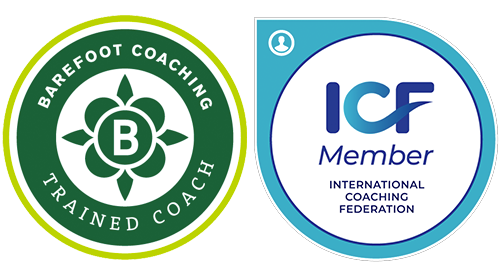One area of coaching that I am passionate about takes me into schools, where I deliver emotional resilience workshops to teenagers in years 7 up to year 13. Last week I was with a group of year 12 girls who were preparing for their mock AS levels. The pastoral staff thought it would be a good time for me to talk to them because of the looming examinations. However, when I asked them “what are your main worries and how do they affect you”? the worries didn’t just come down to work overload and the demands of their school work.
One girl immediately offered her view:
I’m never good enough because there is always someone better than me. I often feel paralysed with fear because I might fail and it feels like everyone around me is more able.
This comment really took me back. Many of the girls nodded in agreement with her and this led us onto a discussion about what good enough looks like. They didn’t know the answer. However, the underlying feeling was that even when they are successful at something, they can’t stop comparing themselves to others around them. They permanently fear their next challenge and the possible failure of it.
Stop comparing yourselves to others
Always comparing ourselves to others can have a long lasting negative effect on our emotional health. It can lead to low self-esteem, anxiety and sometimes depression. I coach both adults and teenagers and there are many times where a client has such a low opinion of themselves that they find it difficult to function and enjoy life. This fear of not being good enough and comparing themselves to others, manifests itself in many areas of their lives on a daily basis.
Simple tasks like: walking into a shop on their own; putting their hand up in class; speaking up when with a group of friends or giving an opinion in a work situation, seems overwhelming. They seem to have a debilitating fear about what other people think of them. They are scared of making a mistake or looking stupid in front of others. I feel that because of this, they spend much of their time watching other people’s lives on social media, in the perceived comfort of their own space. This space can be anywhere now, with 4G and Wi-Fi.
Constant social media comparison
Communicating online may feel safe because they don’t have to face people in the flesh but actually they are becoming more lost in this world. By experiencing everything virtually they are in being denied all the real experiences in life that they could learn from. They only see a chosen digitally enhanced part of other people’s lives. With social media we are never alone, and the constant reminder of how brilliant and successful other people are is always there, if you look for it. With the teenagers I coach, they feel they have to compete with other people’s posts and post their own lives to show happy and popular they are. Does it make them feel better or is it something they feel pressured to do? I believe that the amount of time and effort this takes is having a negative affect on how much they actually value themselves.
I know from personal experience, there are times when I browse through Facebook and look at what all my friends and acquaintances are doing. It can make me feel like my life isn’t as good as it could be. It might sometimes make me feel a little insecure or, dare I say it, envious. However, if I ever feel this, I am very quick to turn it off and go and do something different. I know that looking at other people and making comparisons can only hurt my self-esteem and that only I can make my life better.
How can we reduce this feeling of ‘I’m just not good enough’?
A lot my clients suffer from anxiety and often have very low self-esteem and lack confidence in their own ability. Helping them to centre on what they are doing well and what they are achieving, rather than comparing themselves to others is key to helping them feel less anxious. To be content and happy with the effort that they are putting in and always working hard to be the best version of themselves is a very important part of becoming resilient. It is ok to strive to be better and to look at others and be inspired by their achievements but never to feel inferior or demotivated because of this.
I introduce the importance of developing a Growth Mind Set which is a attitude and personal quality that anyone can acquire, if they are willing to make changes to the way they think. Take a look at this TED Talk by Carol Dweck on growth mind-set.
Instead of feeling powerless and thinking ‘I’m just not good enough’ try the following:
- Think about how you want to be, what excites and motivates you, and work towards this.
- Praise yourself and tell yourself you are good enough.
- Instead of making comparisons with others, put effort into being a better version of you.
- Congratulate yourself on your achievements and be proud of what you have done.
- If what you see online makes you feel insecure and bad about yourself, take control and turn it off and do something else that makes you feel good.
- Be inspired by other people’s success and possibly learn from them but never compare yourself.
- Always try and reflect on the good things that happen to you, however small and try not to dwell on the bad.
- Fill in a gratitude diary and constantly reflect on what you are grateful for, rather than looking for the things you don’t have.



